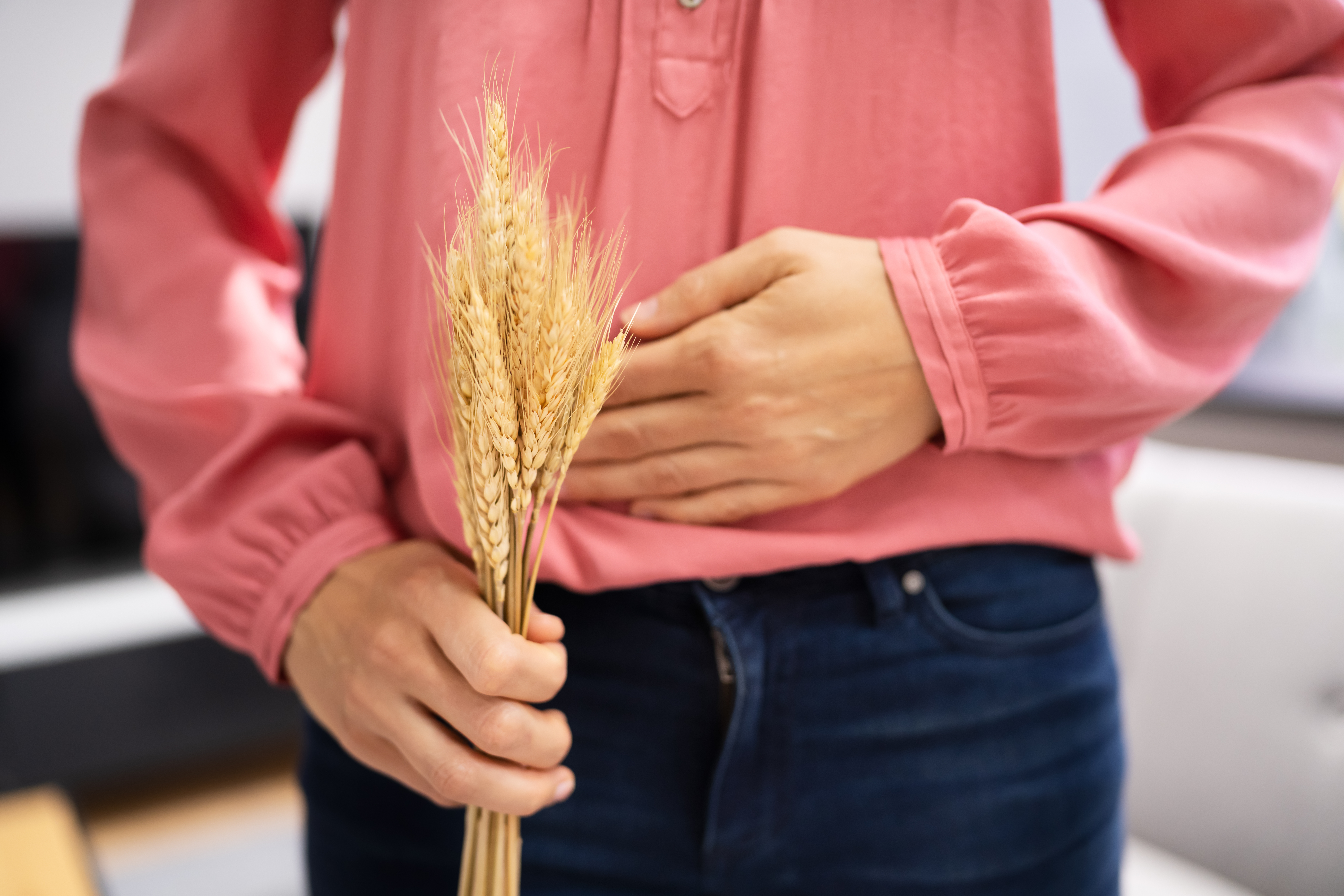
Here’s how to know if you have celiac disease or another digestive issue.
Do you experience discomfort after eating foods containing gluten? Do you have symptoms such as abdominal pain, bloating, gas, diarrhea, or constipation? If so, you may assume you have celiac disease. But how do you know for sure if that’s what’s causing your symptoms?
What is celiac disease?
In people who have celiac disease, eating gluten triggers an overactive immune response in the small intestine that damages the intestinal lining and makes it harder for it to absorb some nutrients. It is a serious autoimmune condition and there is no cure for the disease. The only way to manage celiac disease is to strictly avoid eating gluten. Gluten is found in wheat, rye, and barley, as well as any foods containing these grains.
How do you know if you have celiac disease?
Symptoms of celiac disease can vary greatly and may differ between adults and children. Some symptoms of celiac disease may also be experienced in people with other digestive issues, such as non-celiac gluten sensitivity (NCGS) or a wheat allergy.
Common digestive symptoms include:
- Abdominal pain
- Bloating
- Gas
- Nausea/vomiting
- Diarrhea or constipation
- Foul-smelling stool
Other symptoms may include:
- Weight loss
- Fatigue
- Anemia
- Headaches
- Skin rashes
- Bone weakness
- Joint pain
- Nerve damage
What should you do if you have these symptoms?
If you think you may have celiac disease, it’s important to get tested. Left untreated, celiac disease can cause serious health issues. So if you have any of the symptoms listed after eating foods containing gluten, if symptoms last more than two weeks, or if you have another reason to suspect you may have celiac disease (such as a family history), see a doctor. A blood test and/or genetic testing can be done to check for celiac disease. A small intestine biopsy is also usually recommended to confirm the diagnosis.
How do you treat celiac disease?
There is no cure for this autoimmune condition and the only way to treat it is to completely eliminate gluten from your diet. If you continue to eat gluten, it can lead to further damage to your small intestine. By eliminating gluten from your diet, your intestines have a chance to heal and symptoms should subside.
Why are so many people following a gluten-free diet?
People choose to reduce or eliminate gluten from their diet for a variety of reasons. Some people do it as a way to lose weight, although it’s important to keep in mind that going gluten-free doesn’t necessarily mean you are eating healthy. Although gluten is often found in bread, crackers, pasta, cookies, and other baked goods, gluten-free alternatives of these products are often not healthier or lower in calories. There are also foods that are naturally gluten-free that are not healthy. Keep in mind that if you cut gluten out of your diet but don’t need to, you may be missing out on important vitamins and minerals.
Copyright 2023 © Baldwin Publishing, Inc. Health eCooks™ is a designated trademark of Baldwin Publishing, Inc. Cook eKitchen™ is a designated trademark of Baldwin Publishing, Inc. Any duplication or distribution of the information contained herein without the express approval of Baldwin Publishing, Inc. is strictly prohibited.
Date Last Reviewed: March 20, 2023
Editorial Review: Andrea Cohen, Editorial Director, Baldwin Publishing, Inc. Contact Editor
Medical Review: Perry Pitkow, MD
Learn more about Baldwin Publishing Inc. editorial policy, privacy policy, ADA compliance and sponsorship policy.
No information provided by Baldwin Publishing, Inc. in any article is a substitute for medical advice or treatment for any medical condition. Baldwin Publishing, Inc. strongly suggests that you use this information in consultation with your doctor or other health professional. Use or viewing of any Baldwin Publishing, Inc. article signifies your understanding and agreement to the disclaimer and acceptance of these terms of use.